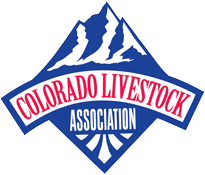Greetings CLA Newsletter Readers. I hope as you are reading this you and your loved ones are safe and healthy.
Featured photo caption: Local gleaner harvests carrots for food donation event (2016).
In my daily work at the Environmental Protection Agency Region 8 Headquarters in Denver, Colorado, I recently spoke with a representative from a national animal agriculture association about food donation. I realized this might be a great time to talk to you about donation too. Disclaimer: I’m not a legal or tax expert, so if you are interested in donating food, please discuss this with your attorney and accountant to get further tax benefit information and address any potential liability concerns you may have.
In my professional experience, many folks, regardless of industry (be it restaurants, farmers, ranchers, grocers, hotels, or non-profits) believe that donating food will create a serious liability risk for their business if a recipient of the food gets sick. This is, in my view, a myth. In my 7 years of working with food systems and sustainable management of food topics I’ve learned from legal experts about the liability aspects of food donation.
According to University of Arkansas’ 2013 Legal Guide to Food Recovery:
“…lawsuits arising out of the donation or provision of recovered food are extremely uncommon. Indeed, a thorough search of filings and review of reported decisions did not turn up a single case that involved food donation-related liability or any attempts to get around the protections offered by the Bill Emerson [Good Samaritan Food Donation] Act. Additionally, several leading food recovery experts and antihunger advocates report that they are unaware of any such actual or threatened lawsuits. The absence of litigation or other disputes related to food donation demonstrates that fear of lawsuits or other negative publicity related to mishaps with donated food are overstated and largely illusory barriers to food recovery.”
In short, the lack of liability risk is GREAT NEWS and due in large part to the 1996 Bill Emerson Good Samaritan Food Donation Act which provides limited liability protection to “persons and gleaners” (including qualified direct donors) who make good faith donations of food to nonprofit organizations that feed the hungry.
In addition, the federal government enhanced tax deductions to businesses (Internal Revenue Code 170(e)(3) (2011)) to encourage donations of food to qualified nonprofit organizations. Qualified business taxpayers can deduct the cost to produce the food and half the difference between the cost and full fair market value of the donated food. These deductions also include provisions from the 2015, Protecting Americans from Tax Hikes (PATH) Act, to include all businesses, including C-corporations, S-corporations, limited liability corporations (LLCs), partnerships, and sole proprietorships.
Want to learn more? The USDA provides a detailed webpage related to all of these topics and more. Further, the US EPA also offers many tools and technical assistance related to food recovery as highlighted on this webpage. For Colorado, Wyoming, Utah, Montana, North Dakota and South Dakota, I’m your contact. If you or your network are in other states, check this EPA webpage for additional EPA Sustainable Management of Food representatives in various EPA Regions.
Regarding potential excess food, please don’t hesitate to reach out to me if you’d like information about food rescue and redistribution (including information about food banks, food pantries, etc.).
This is my final article in a series of four articles for the CLA Newsletter. It’s been my sincere pleasure writing these articles in cooperation with CLA. Special thanks to Bill Hammerich, Jessica Lemmel, and Kellee Mitchell.
Thanks, also, to all of CLA’s membership and newsletter readers for the hard work, love, and dedication you put into what you do every day. Please know that if you ever want to talk to someone at your EPA Region 8 office, you have a supportive and friendly person you can call. Me!
Best of wishes to all of you and your loved ones during these challenging days.
Virginia Till works at EPA Region 8 (Denver, CO) to reduce food going to landfills and can be reached at till.virginia@epa.gov or 303.312.6008.
Excerpts from the Bill Emerson Good Samaritan Food Donation Act
Norvell William (Bill) Emerson (1938-1996) Photo Credit: Public Domain
Public Law 104–210 104th Congress
An Act To encourage the donation of food and grocery products to nonprofit organizations for distribution to needy individuals by giving the Model Good Samaritan Food Donation Act the full force and effect of law…
SECTION 1. CONVERSION TO PERMANENT LAW OF MODEL GOOD SAMARITAN FOOD DONATION ACT AND TRANSFER OF THAT ACT TO CHILD NUTRITION ACT OF 1966.
(a) CONVERSION TO PERMANENT LAW.—Title IV of the National and Community Service Act of 1990 is amended— (1) by striking the title heading and sections 401 and 403 (42 U.S.C. 12671 and 12673); and
(2) in section 402 (42 U.S.C. 12672)—
(A) in the section heading, by striking ‘‘MODEL’’ and inserting ‘‘BILL EMERSON’’;
(B) in subsection (a), by striking ‘‘Good Samaritan’’ and inserting ‘‘Bill Emerson Good Samaritan’’;
(C) in subsection (b)(7), to read as follows: ‘‘
(7) GROSS NEGLIGENCE.—The term ‘gross negligence’ means voluntary and conscious conduct (including a failure to act) by a person who, at the time of the conduct, knew that the conduct was likely to be harmful to the health or well-being of another person.’’; (D) by striking subsection (c) and inserting the following:
“(c) LIABILITY FOR DAMAGES FROM DONATED FOOD AND GROCERY PRODUCTS.—
‘‘(1) LIABILITY OF PERSON OR GLEANER.—A person or gleaner shall not be subject to civil or criminal liability arising from the nature, age, packaging, or condition of apparently wholesome food or an apparently fit grocery product that the person or gleaner donates in good faith to a nonprofit organization for ultimate distribution to needy individuals.

